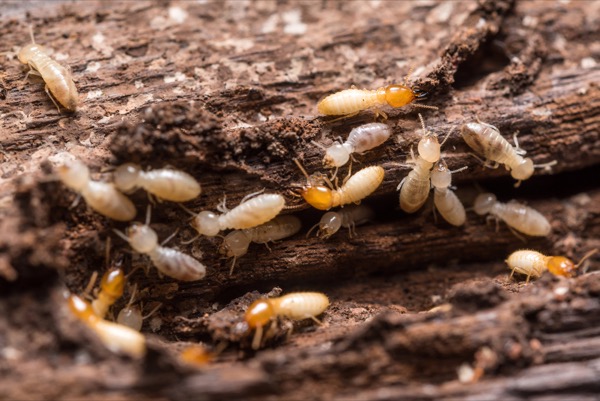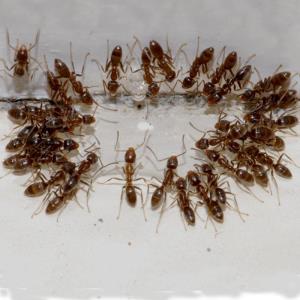Premier Termite Control Services: Ensure Long-Term Security for Your Residential or commercial property
Premier Termite Control Services: Ensure Long-Term Security for Your Residential or commercial property
Blog Article
Environmental Effect of Pest Control: Harmonizing Effectiveness With Sustainability
The environmental impact of pest control is an important issue that needs a fragile equilibrium in between attaining performance in handling parasites and making sure sustainability of our ecological communities. From the usage of damaging chemicals that seep right into our dirt and water to the unplanned consequences on non-target species, the repercussions of traditional insect control practices are far-ranging.
Dangerous Chemicals in Insect Control
The utilization of damaging chemicals in parasite control positions substantial ecological and health risks that warrant careful consideration and reduction methods. Chemicals, pesticides, and herbicides are commonly utilized to eliminate pests, but their extensive application can cause unintended repercussions. These chemicals can infect dirt, water sources, and the air, impacting not only the targeted parasites however also valuable insects, wild animals, and human beings.

To deal with these threats, integrated bug management (IPM) techniques are being promoted as a more sustainable alternative. IPM includes a mix of approaches such as biological control, habitat control, and the targeted usage of chemicals as a last resort (ant control conover nc). By taking on a holistic technique to pest control, we can minimize the ecological and health impacts connected with damaging chemicals while effectively managing pest populaces
Influence On Non-Target Species
Thinking about the unexpected consequences of insect control techniques, the effect on non-target varieties is a crucial element that requires extensive evaluation. While parasite control actions intend to target certain bugs, other microorganisms in the ecological community might be unintentionally impacted. Non-target species, including helpful bugs, birds, mammals, and even plants, can endure straight or indirect damage from pesticide applications or organic control techniques.
Insecticides made to combat a certain bug bug may hurt pollinators like or all-natural killers such as ladybugs. Biological control agents, if not species-specific, can position risks to unplanned targets, disrupting the environmental equilibrium.
To alleviate the influence on non-target types, integrated bug administration (IPM) methods that stress an all natural strategy to pest control are suggested. These methods focus on making use of eco pleasant techniques, minimizing damage to useful microorganisms while effectively taking care of pest populations. Conducting extensive danger analyses and monitoring the results of bug control efforts are important action in securing non-target types and promoting total environment health.
Dirt and Water Contamination
Unplanned environmental repercussions of insect control techniques expand past affecting non-target varieties, with substantial ramifications for dirt and water contamination - termite control. Pesticides, herbicides, and chemical plant foods made use of in pest control can seep into the soil and pollute groundwater, posturing a hazard to both terrestrial and marine environments.
Water contamination is an additional critical issue linked with pest control practices. Runoff from farming fields treated with pesticides can lug these chemicals into close-by water bodies, affecting marine organisms and water high quality. Contaminants in water resources can have significant consequences, impacting not just aquatic life yet likewise human wellness through the intake of infected water or marine organisms. To minimize soil and water contamination from bug control tasks, integrated insect monitoring approaches that focus on sustainability and reduce chemical inputs are crucial.
Air Air Pollution From Pesticide Usage
Exposure to airborne chemicals during agricultural applications poses a substantial concern for air pollution control procedures. Furthermore, pesticide drift, where chemicals are carried by the wind to unintentional locations, can lead to the contamination of close-by communities and water bodies.

Techniques for Lasting Parasite Control
In the realm of agricultural practices, applying sustainable insect control strategies is vital for maintaining environmental balance and guarding plant returns. Sustainable parasite control highlights making use of eco-friendly methods to handle bug populations properly while minimizing damage to non-target organisms and environments. Integrated Insect Monitoring (IPM) is a commonly embraced technique that incorporates biological, social, physical, and chemical control approaches to attain lasting bug administration solutions.
One secret technique in lasting insect control is promoting biodiversity within agroecosystems. you could check here By boosting natural enemies of parasites, such as parasitoids and killers, farmers can lower the need for artificial pesticides. Plant turning and diversification are also reliable methods to disrupt pest life process and create less desirable conditions for insects to grow. Furthermore, using pest-resistant plant selections and using methods like trap cropping can help reduce bug stress without relying greatly on chemical treatments. Inevitably, by integrating these sustainable pest control approaches, farmers can achieve a balance between pest management efficiency and environmental stewardship.
Conclusion
To conclude, the ecological influence of insect control methods must be very carefully thought about to balance efficiency with sustainability. Harmful chemicals made use of in bug control can lead to soil and water contamination, air contamination, and damage non-target species - ant control. It is crucial to execute sustainable parasite control strategies to reduce these unfavorable results on the environment and promote a much healthier ecosystem for future generations
By adopting an all natural approach to pest control, we can minimize the environmental and health influences connected with harmful chemicals while effectively taking care of pest populations.

To mitigate the air contamination caused by chemical use, it is important to embrace integrated bug management methods that focus on the use of non-chemical bug control techniques, such as crop turning, natural killers, and resistant plant ranges. Lasting bug control stresses the usage of ecologically friendly methods to manage pest populaces effectively while decreasing harm to non-target microorganisms and ecological communities. Integrated Bug Monitoring (IPM) is an extensively embraced method that incorporates biological, social, physical, and chemical control methods to accomplish long-term insect administration remedies.
Report this page